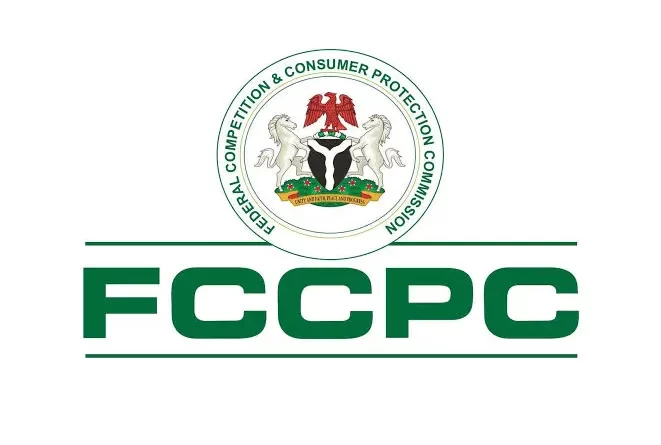FCCPC seals warehouses, retail outlets in Kano over sale of undermeasured fabrics
The Federal Competition and Consumer Protection Commission (FCCPC) has sealed several warehouses and retail outlets in Kano State following verified intelligence reports of deceptive trade practices involving the sale of undermeasured fabric materials to consumers.
Boladale Adeyinka, director of surveillance and investigations at the FCCPC, explained that the operation was part of the Commission’s broader effort to enforce compliance with the Federal Competition and Consumer Protection Act (FCCPA) 2018, safeguard consumer rights, and ensure fair competition in Nigeria’s marketplace.
According to Adeyinka, the enforcement action followed weeks of discreet surveillance and intelligence gathering, which revealed that a number of retailers and distributors were deliberately selling fabrics significantly shorter than the measurements indicated on their labels, while still charging customers the full price.
“We discovered fabrics labelled as 10 yards actually measured 9, and those marked 5 yards were 4 or even less,” Adeyinka said. “Consumers are paying full prices for products that are undermeasured. This is a clear violation of the FCCPA, as it constitutes false, misleading, and deceptive representation.”
Adeyinka cited Sections 123(1) and 125(1) of the FCCPA, which prohibit any form of misleading representation concerning the quantity, quality, or standard of goods sold to consumers. She emphasized that such acts distort market fairness, exploit consumers, and undermine legitimate businesses that comply with ethical standards.
“These practices not only cheat consumers but also disadvantage honest traders,” she noted. “They distort competition and threaten the integrity of Nigeria’s retail ecosystem.”
Pursuant to Sections 27 and 28 of the FCCPA, which empower the Commission to enter, search, and seize goods or documents linked to suspected violations, the FCCPC sealed several warehouses and confiscated fabric samples for measurement verification and further investigation.
The Commission listed several warehouses and brands under investigation, including LGR Products, UME Products, NANATEX Products, VLEVENTIS Products, MAMA AFRICA Products, ITEX Products, UE Products, SUVELT Products, and JISIKI Products.
The affected warehouses are located at Gandu Albasa Layout (Nos. 238, 249, 313, 315, 413, and 428), 38 and 40 Ibrahim Taiwo Road, 87 Boar Rice Mill Street, Ajasa Inwua Wada Road, and 287 Gandu Albasa New Layout, all in Kano State.
Adeyinka revealed that four of the warehouses inspected were “filled to the brim” with thousands of fabric bundles, adding that the business scale was enormous, with billions of naira reportedly circulated monthly through these deceptive transactions.
“These warehouses distribute nationwide, selling widely used wrapper fabrics. The turnover rate is very high, and so is the scale of this infraction,” she said
The Director described the practice as “obnoxious and exploitative,” noting that millions of Nigerian consumers have unknowingly been shortchanged. Many of the complaints received by the Commission stemmed from tailors and consumers arguing over fabric shortages after purchase — disputes often wrongly attributed to the tailors themselves.
“It’s not the tailor’s fault,” Adeyinka clarified. “When a consumer buys what is labeled as six yards and discovers it’s actually five, that’s outright deception. This must stop.”
Adeyinka reiterated that violators would face prosecution under the FCCPA. Under Section 155, individuals found guilty of contravening consumer rights provisions risk imprisonment of up to five years, a fine of ₦10 million, or both. Corporate bodies face penalties of not less than ₦100 million or 10% of their annual turnover, whichever is higher. Directors of such companies may also be personally liable.
Read also: FCCPC commends CBN’s 48-hour refund policy for failed ATM transactions
The FCCPC emphasised that these enforcement actions are intended to serve as a deterrent to others engaged in similar practices. The Commission will continue surveillance operations in Kano and other parts of the country to identify and sanction violators.
“This operation reinforces the Federal Government’s commitment to consumer protection and market fairness,” Adeyinka stated. “We will not relent in ensuring that Nigerian consumers get value for their money and are protected from deceptive and fraudulent business practices.”
The FCCPC also urged consumers to remain vigilant and report suspected cases of deceptive trade practices through its official complaint channels.
“Consumers must insist on their rights,” Adeyinka concluded. “Together, we can build a fair, transparent, and trustworthy marketplace for all.”

